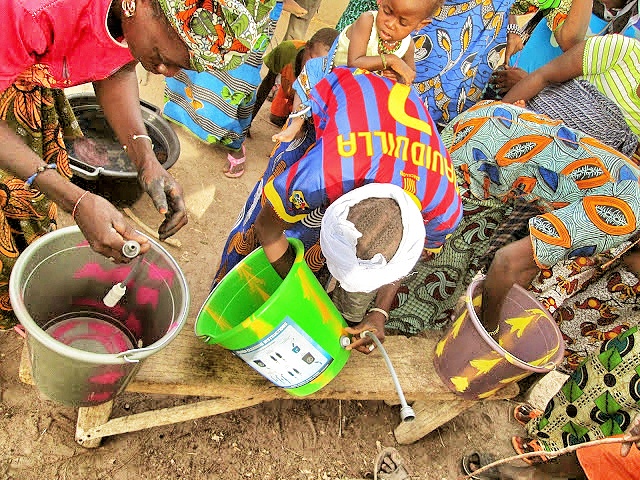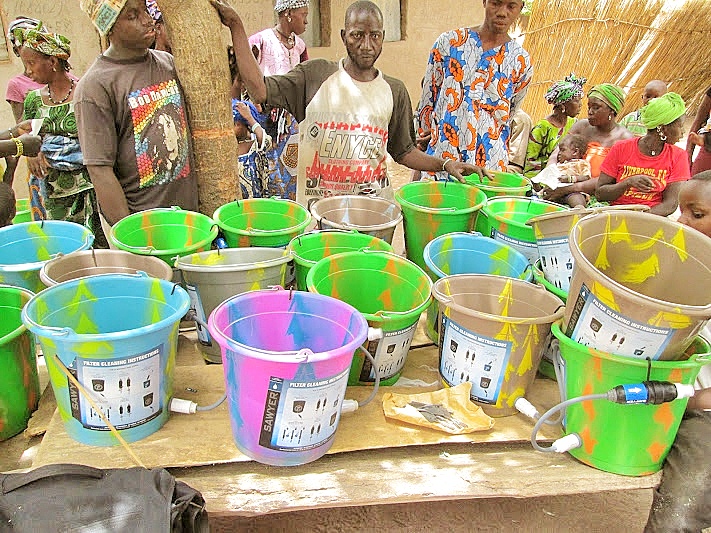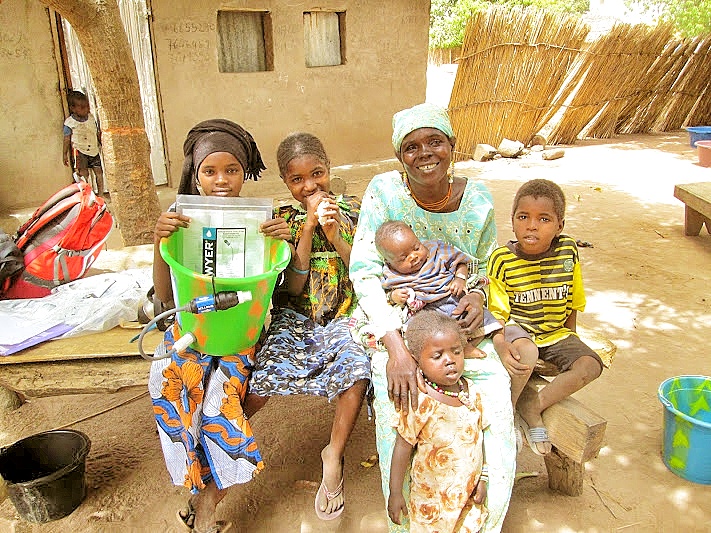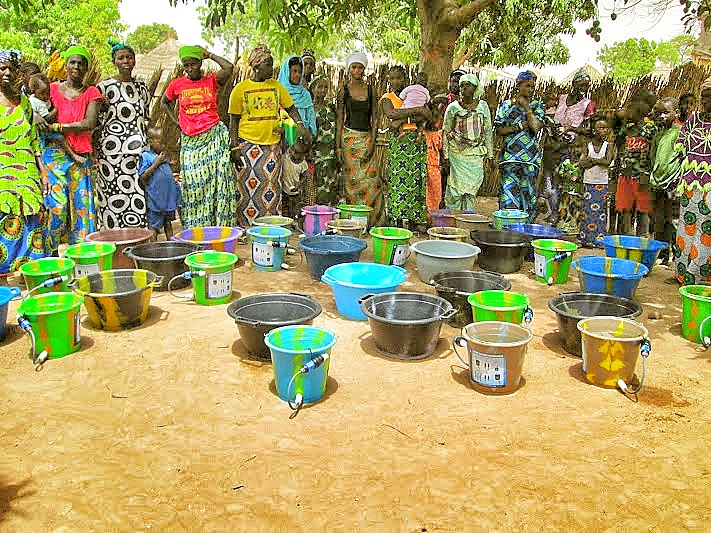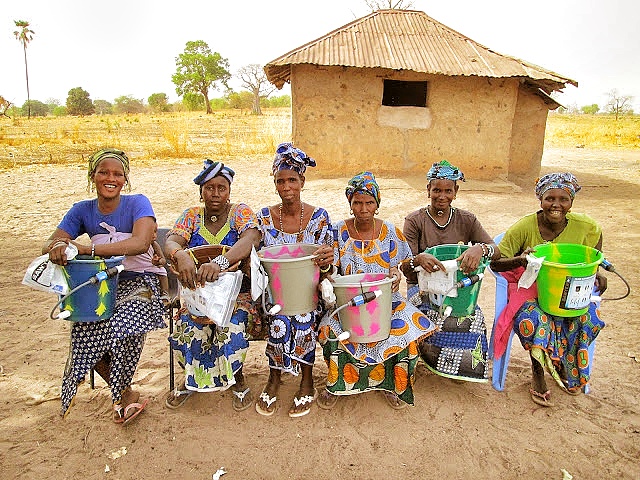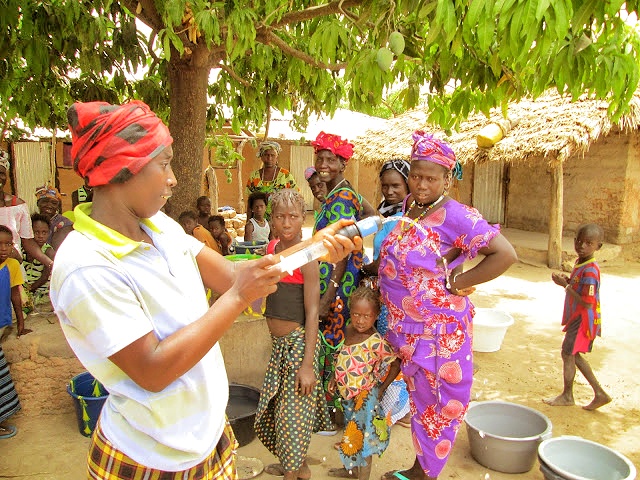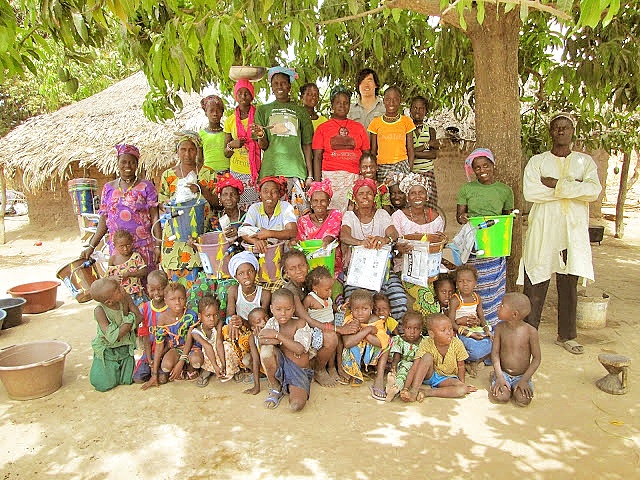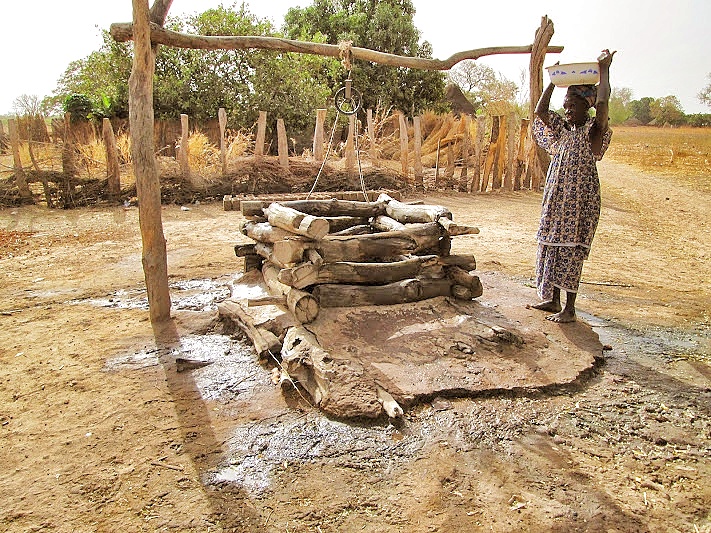This project has been completed under the direction of RPCV Jeremy Mak. To read about the beginning of the project, CLICK HERE.
This project was designed to secure access to clean drinking water for small, underserved satellite villages in Gambia’s Niamina East District, all of whom rely exclusively on dirty, open wells due to hand pump failure or absence. Although the beneficiary communities shifted over time, the result was another remarkable success.
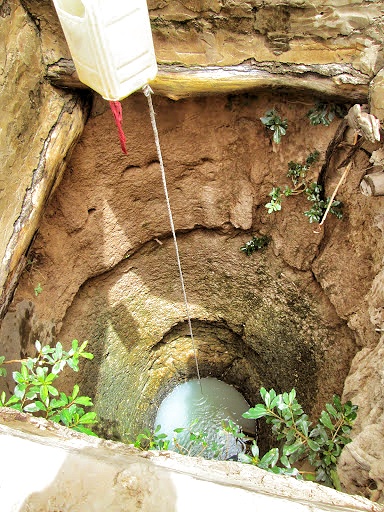
Jeremy writes:
“Through support from Water Charity at the National Peace Corps Association, we distributed Sawyer Point One household water filters to each compound in the 5 villages of Borehole, Si Kunda, Modikaya, Colley Kunda, and Sinchu Al-Haggi.In total, this initiative reached approximately 648 people, restoring clean drinking water to 3 communities, and bringing clean water for the first time to 2 additional villages.Before the distribution of Sawyer filters, each community was resigned to resort to drinking directly from open wells, sources of potentially fatal waterborne diseases like dysentery and diarrhea. Simple, effective, and long-lasting solutions to filtering water and preventing such illnesses—such as the Sawyer Filter—are game changers for poor, remote communities like these.
It was originally envisaged to pilot only 3 to 4 filters in four villages on a trial basis. However, due to overwhelming need and high interest/demand registered in our survey trips, we supplied every compound in 5 villages with at least one, giving villagers a much healthier, preferential option to drinking open well water. 50 filters were distributed across the communities of Borehole (5 filters to 5 families in 3 compounds), Si Kunda (20 filters to 20 compounds), Modikaya (8 filters to 8 compounds), Colley Kunda (6 filters to 6 compounds, 2 filters to a Koranic school), and Sinchu Al-Haggi (9 filters to 9 compounds).
Survey and distribution activities took a total of 5 days. At first, it was planned to also distribute filters to Kalikajara village, but upon inspection, we found it technically feasible to rehabilitate Kalikajara’s lined, open well through chlorination and installation of two new Blue pump hand pumps. Papa and Sinchu Yerro were also shortlisted for possible Sawyer distributions, but we had to prioritize
communities by geographic clustering due to the limited supply of filters and time and transport constraints. Papa and Sinchu Yerro will be among villages considered for follow-up distributions in the future.
In each beneficiary community, villagers self-selected a designated female lead from each compound to be responsible for the filters in their care. We taught villagers how to assemble, use, clean, and care for the Sawyer filters, making sure that they understood that with responsible care, the filters could serve them for decades. Pictures of the filter distributions from Borehole and Si Kunda can be seen here. Pictures of filter distributions from Modikaya, Colley Kunda, and Sinchu-Al Haggi can be viewed here.
A short description of each community is below, along with embedded links to videos of open wells and filter/taste test demonstrations and distributions:Borehole is a very small community of only 3 compounds/46 people. They draw water from a hand-dug, open well,and drink the dirty water straight. The well is roughly lined with loose rocks and structurally unsound for a hand pump. See what it’s like for Borehole residents to fetch water here and here.
The Sawyer filters have brought clean water to Borehole for the first time ever!Si Kunda—a community of 20 compounds/272 people— had two Mark II hand pumps installed on a covered well in 2005. However, the pumps experienced problems 7 years ago. An unscrupulous local well mechanic pulled everything out, promising to bring new pipes and parts, but absconded with the old pump components instead. The community, relying only on a single open well for their needs and their cattle’s water needs, opened the closed well 4 years ago. Before receiving Sawyer water filters through this distribution here, the village drank directly from these two open wells you can see here and here.
Due to a lack of parts and pedestals, neither pump repairs nor a Blue pump installation were immediately possible.
Modikaya, a small village of 8 compounds and 103 people, had a working Mark II pump, which failed on them. We attempted to fix it in 2013, but upon pulling out the pipes, discovered that the pumping cylinder was Dutch, contrary to its German pump head markings—unlike the German Mark II cylinders, Dutch cylinders cannot be repaired once they wear out—they are ‘one and done.’ We found out, since then, the village has sold all their old pump parts, including the pump pedestal, a critical piece of the old pump infrastructure that we need in order to set the concrete foundation for a new Blue pump. Without the pedestal, it takes many days longer for the concrete foundation to dry for optimal strength, time we unfortunately couldn’t wait due to our tight work schedule and competing water project priorities. Before our distribution of filters here, they relied on drinking from their open well here.
Colley Kunda, a village of 6 compounds and a Koranic school (106 residents) has similarly suffered for years due to their two Dutch Mark II pumps falling into disrepair. They have been drinking out of an open well for more than 13 years. See our filter distribution and the open well in Colley Kunda here.
Lastly, before receiving Sawyer filters here, Sinchu Al-Haggi, a village of 9 compounds and 121 residents relied exclusively on drinking straight from these 2 open wells.
Thanks again to Water Charity and the National Peace Corps Association for making waterborne diseases a thing of the past for these communities!”
We would like to thank Jeremy yet again for executing such a fine project, another in a long list of amazing projects he has done with us as both PCV and RPCV. And, we would also like to thank Gamrupa Danmark for adopting this great project.
This project falls under our ongoing Filters For Life Program – Worldwide.
